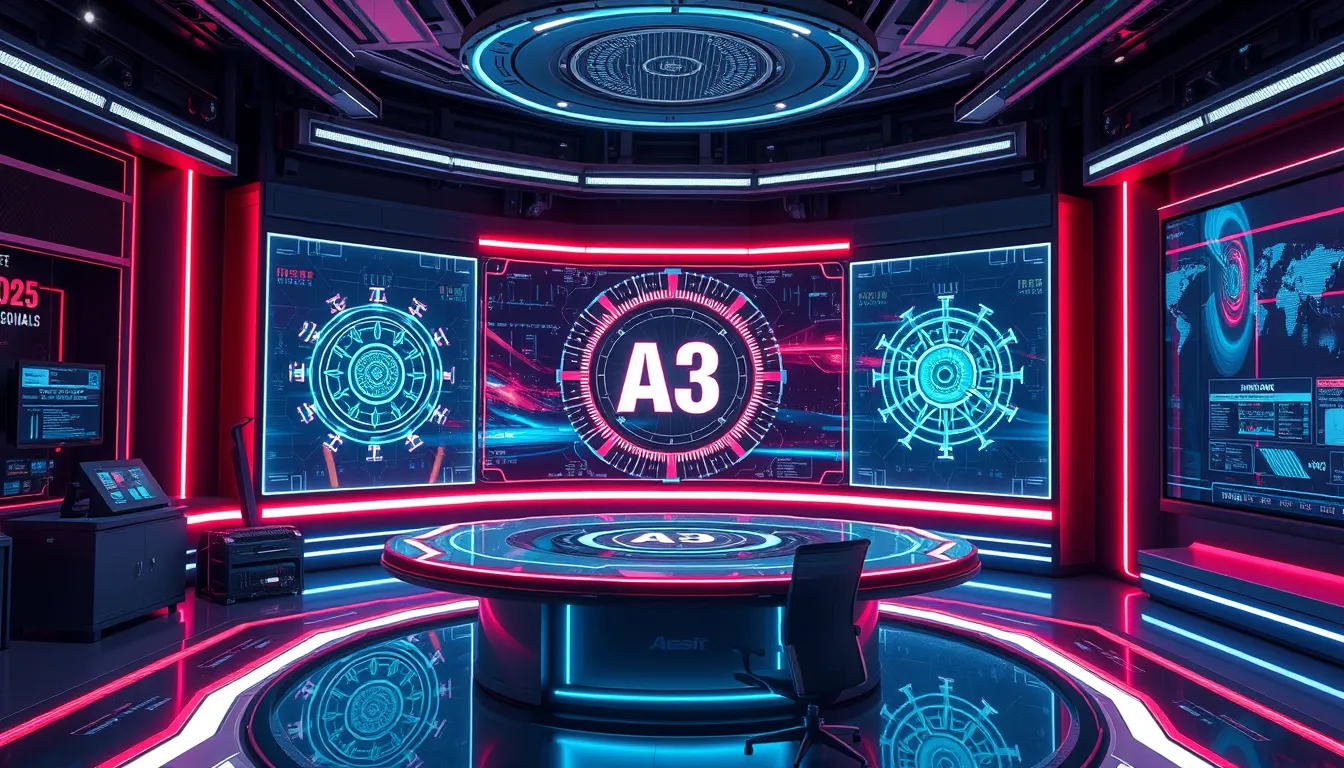Now Reading: Cutting-Edge Artificial Intelligence: Transforming Business for 2025
-
01
Cutting-Edge Artificial Intelligence: Transforming Business for 2025
Cutting-Edge Artificial Intelligence: Transforming Business for 2025

Cutting-Edge Artificial Intelligence: Transforming Business for 2025
In today’s rapidly evolving technological landscape, the narrative surrounding Artificial Intelligence is both dynamic and transformational. As we approach 2025, industry experts and business leaders agree that AI is not just a fleeting trend but a fundamental driving force reshaping enterprises, governance, and cultural discourses. The journey of AI transformation is marked by continuous innovation, ethical debates, and strategic optimization. This article deep-dives into the signals, trends, and potential impacts of Artificial Intelligence transformation.
Emerging Trends in Artificial Intelligence
One of the most compelling signals in the tech world is the rising trend of AI transformation. With a diverse range of applications spanning business optimization, healthcare diagnostics, and financial modeling, Artificial Intelligence has quickly become a strategic asset. Trends such as “AI trends 2025” highlight where the industry is heading, emphasizing the need for enterprises to adopt forward-thinking strategies. The overall impact is such that organizations are integrating AI not just as a tool but as a core component of their operational blueprint.
Machine Learning Advances and Natural Language Processing Breakthroughs
Another crucial aspect of the evolving digital landscape is the breakthrough innovations in machine learning advances and natural language processing breakthroughs. These key components have pushed the frontiers of what technology can achieve. With advancements in algorithms and data processing capabilities, AI has improved its predictive power and efficiency. Whether it is streamlining customer service interactions or providing real-time analytics, the synergy between machine learning and natural language processing is a driving force behind modern Artificial Intelligence applications.
Key Benefits of these Advances
- Enhanced decision-making through predictive analytics
- Improved customer engagement with real-time language processing
- Streamlined operational workflows
- Greater accuracy in data interpretation and predictive tasks
How AI Drives Business Optimization
Businesses that have embraced AI transformation are reaping considerable benefits. One standout long-tail keyword is “how AI drives business optimization.” This concept is a testament to the fact that integrating AI into business strategies leads to efficiency gains and competitive advantages. Companies are leveraging automation, improved data insights, and innovative analytics to optimize operations across various sectors. The direct impact is seen in faster processing times, better resource management, and improved profitability.
The Debate on Ethical AI and AI Regulation
Parallel to the technological advancements is the intensifying debate on ethical AI and the need for AI regulation debate. As Artificial Intelligence becomes more integral to our lives, the call for responsible innovation grows louder. Governments, academic institutions, and corporations are collaborating to shape policies that balance innovation with ethical responsibility. The dialogue often centers on ensuring data privacy, transparency, and accountability. This emphasis on developing ethical frameworks aims to mitigate risks while maximizing the potential benefits of AI transformation.
The Cultural Impact of AI in Media and Public Discourse
The cultural impact of AI in media and public discourse cannot be understated. With documentaries, news articles, and social media discussions increasingly focusing on the role of Artificial Intelligence, public perception is evolving. This section of the debate touches on how AI is portrayed in popular culture and its broader influence on societal norms. As narratives shift, the technology is both celebrated for its potential and scrutinized for its consequences. This duality adds a rich layer of complexity to the ongoing conversation about technology’s role in modern society.
Integrating AI Across Corporate, Government, and Academic Sectors
A notable trend is the integration of AI across various sectors including corporate, government, and academic fields. Organizations in these domains have turned to AI transformation as a cornerstone of strategic growth. Whether it’s to increase operational efficiency or foster innovative research, the impact is pervasive. The seamless integration is a testament to the adaptability of AI solutions across different industries.
Conclusion: The Future of AI Transformation
In conclusion, the transformation powered by Artificial Intelligence is reshaping the future of business and society. With rapid advancements in machine learning and natural language processing, AI is leading the charge in transforming operations across sectors. The ongoing discussions about ethical constraints and regulatory needs further enrich this transformative journey. Whether it is through optimizing business processes or influencing public discourse, AI transformation stands as a critical narrative for 2025 and beyond.
As we continue to harness the power of AI, businesses and policymakers alike are encouraged to adopt frameworks that promote responsible innovation. Embracing these innovations while fostering ethical practices will ensure that the benefits of Artificial Intelligence extend to society at large. To learn more about future trends in AI and best practices for integration, stay tuned to trusted technology publications and regulatory updates from reputable sources.
By considering these insights and recognizing the profound potential of AI, stakeholders across sectors can better prepare for a future where Artificial Intelligence is not just an add-on, but a central pillar of growth and innovation.
For further reading, you may visit reputable sources such as the MIT Technology Review and the IEEE Spectrum, which offer continuous updates on AI trends.
This comprehensive review outlines how Artificial Intelligence transformation is driving societal and business evolution, making it clear that the journey toward a more technologically sophisticated future is well underway.

























